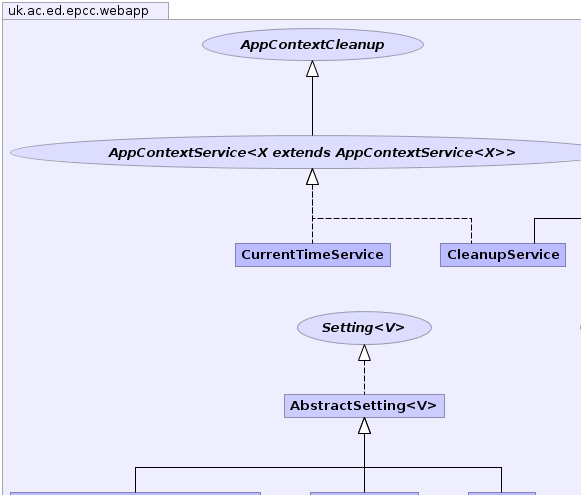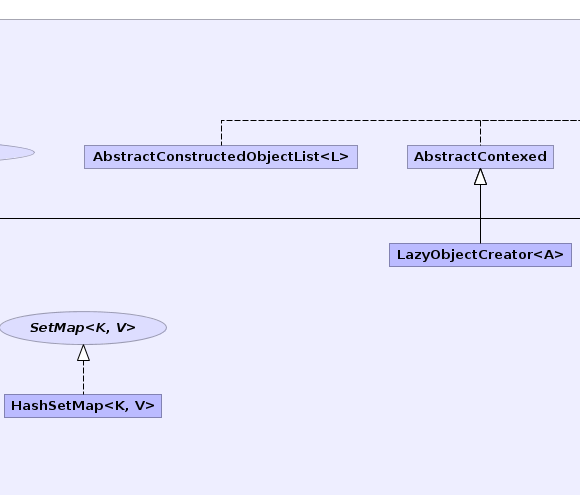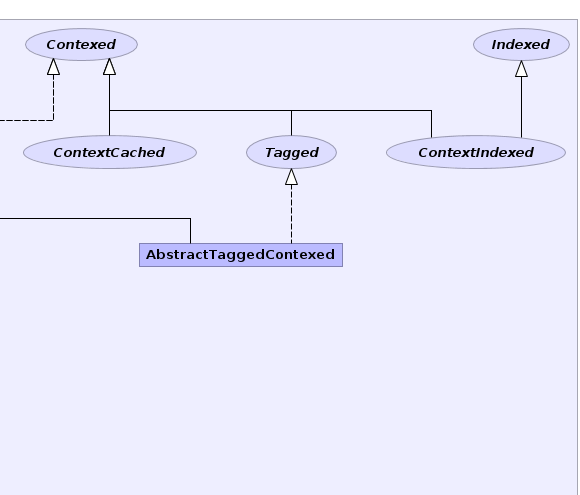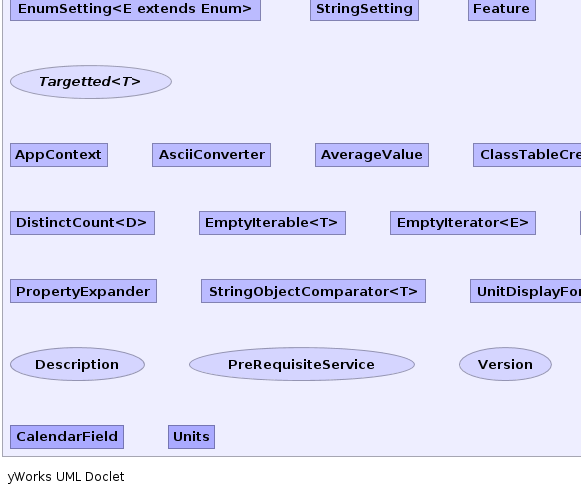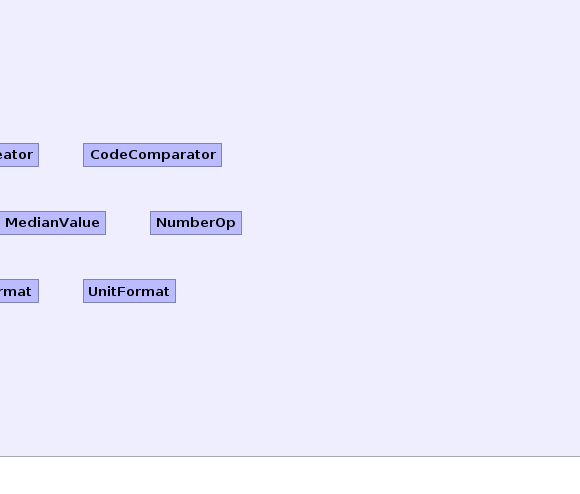-
Interface Summary Interface Description AppContextCleanup Objects stored in anAppContextthat call a cleanup as part ofAppContext.close()These can be attributes orAppContextServiceAppContextService<X extends AppContextService<X>> Interface for Services stored in an AppContext.Contexed Interface for objects that can provide an AppContext.ContextCached Marker interface for objects where only a single instance should exist per AppContext.ContextIndexed Interface for objects like DataObject that are identified by an index and hold a reference to the AppContext.Indexed Interface for objects that can provide a unique positive id number.SetMap<K,V> Helper interface for Maps containing setsSetting<V> ASettingis a configuration parameter with a fixed set of valid values and encapsulted in a model object (usually a singleton) This can either be a configuration parameter that changes the or a user preference of some sort.Tagged Interface forContexedobjects that can be queried for their configuration tag.Targetted<T> Object with a target type that can be queried at run-time. -
Class Summary Class Description AbstractConstructedObjectList<L> ALinkedListof objects that is populated from configuration parameters.AbstractContexed AbstractSetting<V> AbstractTaggedContexed AppContext TheAppContextis used to encapsulate the runtime environment.AsciiConverter AverageValue A Number that represents an average value.ClassTableCreator Created documentation tables of configured classes.CleanupService ACleanupServiceimplements deferred actions to be performed later (usually when theAppContextis closed.CodeComparator Comparator for code strings.CurrentTimeService AnAppContextServicethat returns the current time.DistinctCount<D> EmptyIterable<T> An always empty IterableEmptyIterator<E> An always empty iteratorEnumSetting<E extends java.lang.Enum> AEnumSettingrepresents optional feature in the code.Feature AFeaturerepresents optional feature in the code.HashSetMap<K,V> ASetMapbased onLinkedHashMapLazyObjectCreator<A> This is a lazy evaluated wrapper round the AppContext.makeObject call This allows object construction to be deferred until required.MedianValue A simple class to calculate median values.NumberOp Class for implementing operations on objects of type java.lang.Number performing automatic type promotion as required.PropertyExpander Recursively expandPropertiesinto text.StringObjectComparator<T> AComparatorthat compares Strings as well as another type.StringSetting AStringSettingrepresents optional feature in the code.UnitDisplayFormat A NumberFormat for storage units for displaying arbitrary values The largest unit that is less than the value is used by default.UnitFormat ANumberFormatforUnitsintended for setting/editing quota values. -
Enum Summary Enum Description CalendarField Enum representing Calendar fields in order of significance.Units Enum for standard storage units. -
Annotation Types Summary Annotation Type Description Description A Run-time annotation giving a brief description of a type for run-time reflection based documentation.PreRequisiteService An annotation that defines services that are required by an AppContextService.Version Deprecated
Package uk.ac.ed.epcc.webapp Description
This package contains reusable classes that may be part of more than one
web application.
These classes should therefore not reference particular parts of a web-apps logic but they may represent generally useful concepts.
The most important class to understand is AppContext
